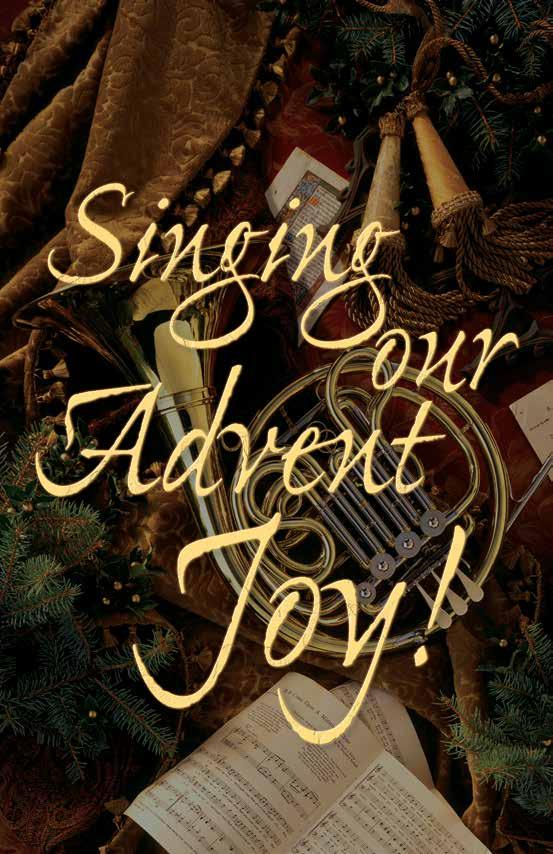
1 minute read
Singing our Advent Joy! The Advent Devotional from Austin Seminary, 2020
I don’t remember ever singing this hymn in church. The Christmas Eve services of my childhood were filled with other, more familiar carols. But I still have a strong connection to this hymn because I remember my mother playing it on the violin. Weather during Christmas season in the Pacific Northwest is not frigid, but it is damp enough to make the cold sink into your bones. I remember dark, damp December evenings when my family would gather in a warm living room, Mom would unpack her violin, and one of her three children would play accompaniment on the piano. We would sing and sometimes we would simply listen. This hymn connects me to home and family.
Advertisement
One of the most striking—and surprising—aspects of the hymn is its central image: a rose as a metaphor for Christ. It’s an image found nowhere in the New Testament. But this absence of biblical precedent does not mean it’s inappropriate. Indeed, it might be the most appropriate of all images for the gift of God’s son: a rose blooming in mid-winter, a sign of beauty in the midst of darkness and loss. The image reminds us that the incarnation— Jesus’s birth—is an event of unsurpassed beauty. In a world beset by the ugliness of violence, discord, and strife, God’s gift is beauty in the flesh which opens our eyes to the beauty that surrounds us at every moment: the beauty of voices gathered in winter, the beauty of the violin, the beauty of reunion and reconciliation, the beauty of our gift to one another. Jesus Christ is the rose who blooms anew in these tumultuous and difficult times.
Reformed theologian Friedrich Schleiermacher, in his book Christmas Eve Celebration: A Dialogue, offers a glimpse of this beauty in a conversation among family and friends: “For us the birth of the Redeemer is the uniquely universal festival of joy ...” Beauty and joy indeed. Thanks be to God.
– Dr. David H. Jensen, Academic Dean and Professor in the Clarence N. and Betty B. Frierson Distinguished Chair of Reformed Theology


